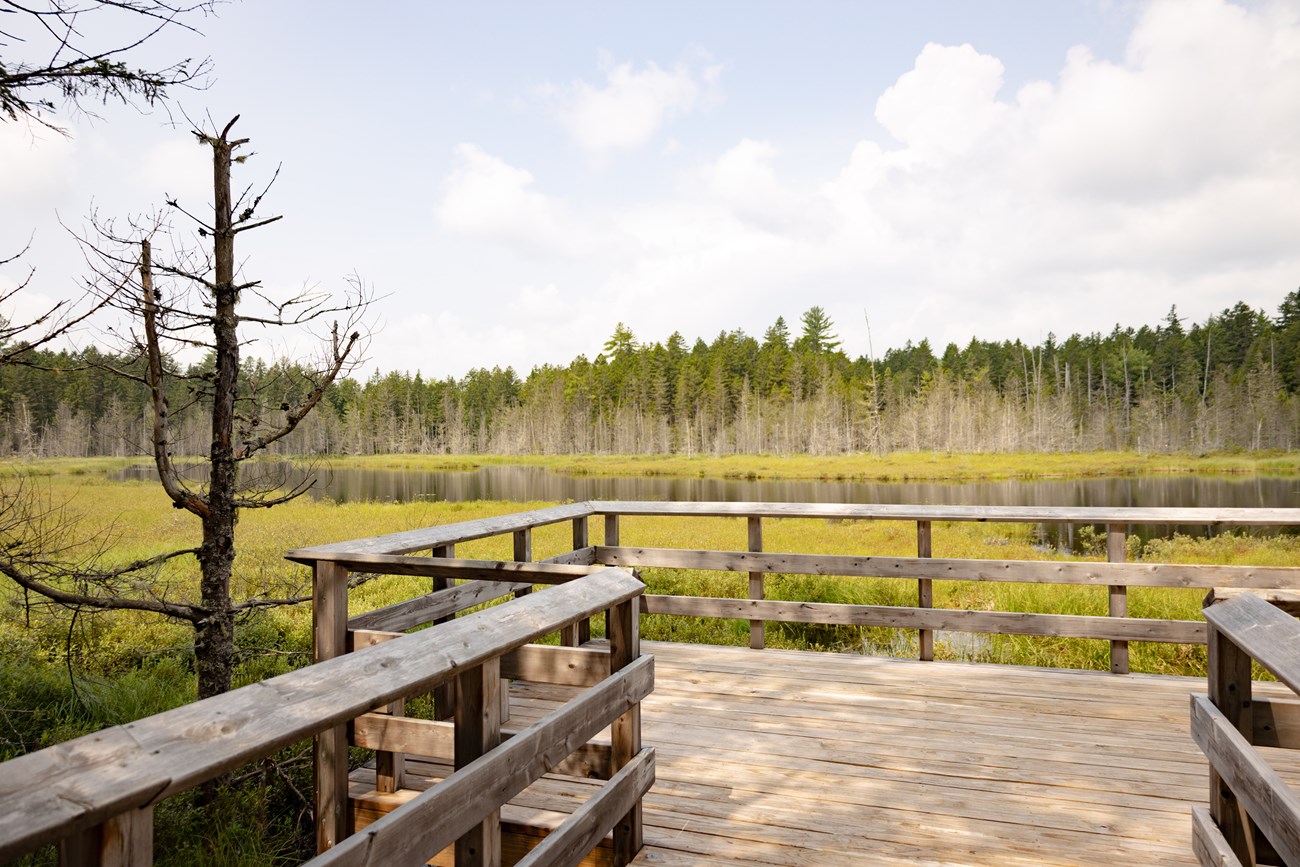Last updated: January 16, 2025
Article
Project Profile: Restoring Natural Flow Regimes and Aquatic Passage for Imperiled Species in Partnership with Tribes

NPS / Grace Kirk
Inflation Reduction Act
Restoration | FY23-24 $619,902
The National Park Service (NPS) will remove impediments and restore habitat for fish and aquatic organism passage within a dozen waterways at Cape Cod National Seashore and Katahdin Woods and Waters National Monument. These passage improvements and habitat restorations will enhance ecosystem function and resilience by allowing sensitive aquatic species, including federally endangered Atlantic salmon, access to breeding grounds, food resources, and cool water refugia. At Katahdin Woods and Waters National Monument, these restorations will enhance and protect traditional Tribal resources.
Why? Barriers to stream passage are among the top threats to populations of diadromous fish, including federally endangered Atlantic salmon, sea-run brook trout, alewives, and American eel. Impairments to stream connectivity also harm habitats up and downstream of barriers by causing erosion and disrupting sediment transport and water channels. Improved passage will restore natural flow regimes and will benefit wetlands, aquatic and terrestrial habitats, and recreation, and Tribal access to traditional resources and practices.
What else? Projects in Katahdin Woods and Waters National Monument will build on existing co-stewardship approaches with the federally recognized tribe, the Penobscot Nation. Tribal youth from Maine’s federally recognized tribes (Houlton Band of Maliseet, Mi’kmaq Nation, Passamaquoddy Tribe and Penobscot Nation) will participate through the Wabanaki Youth in Science program.
